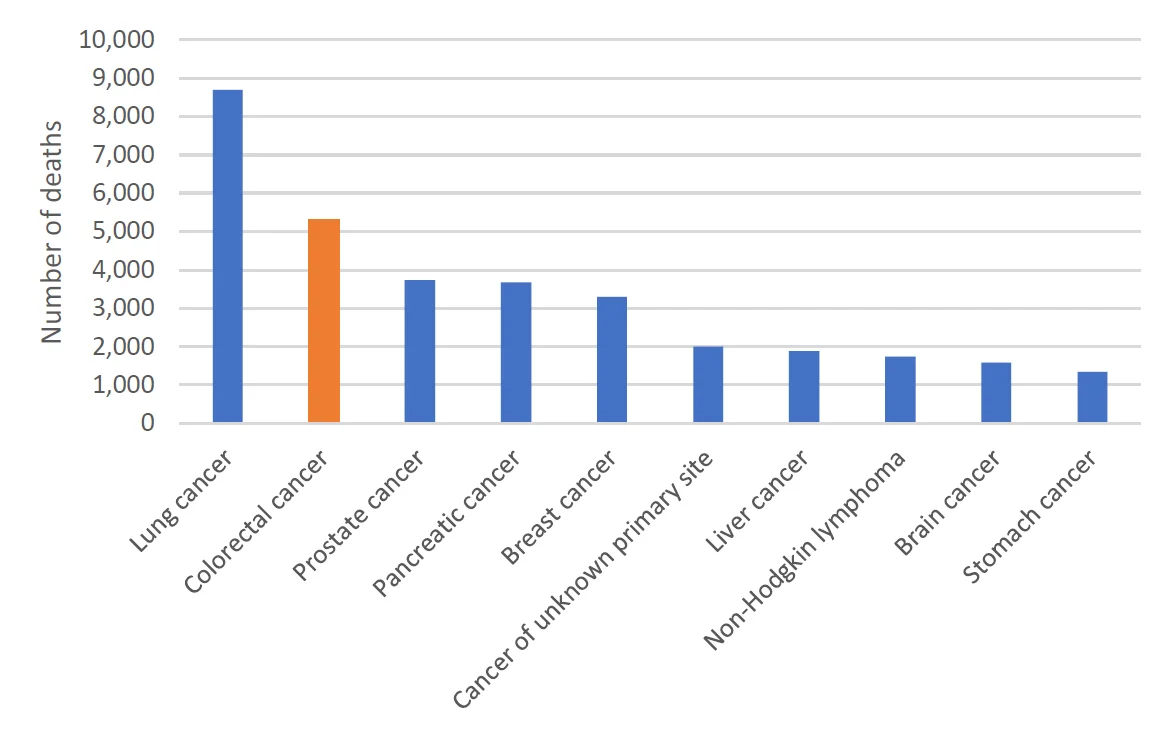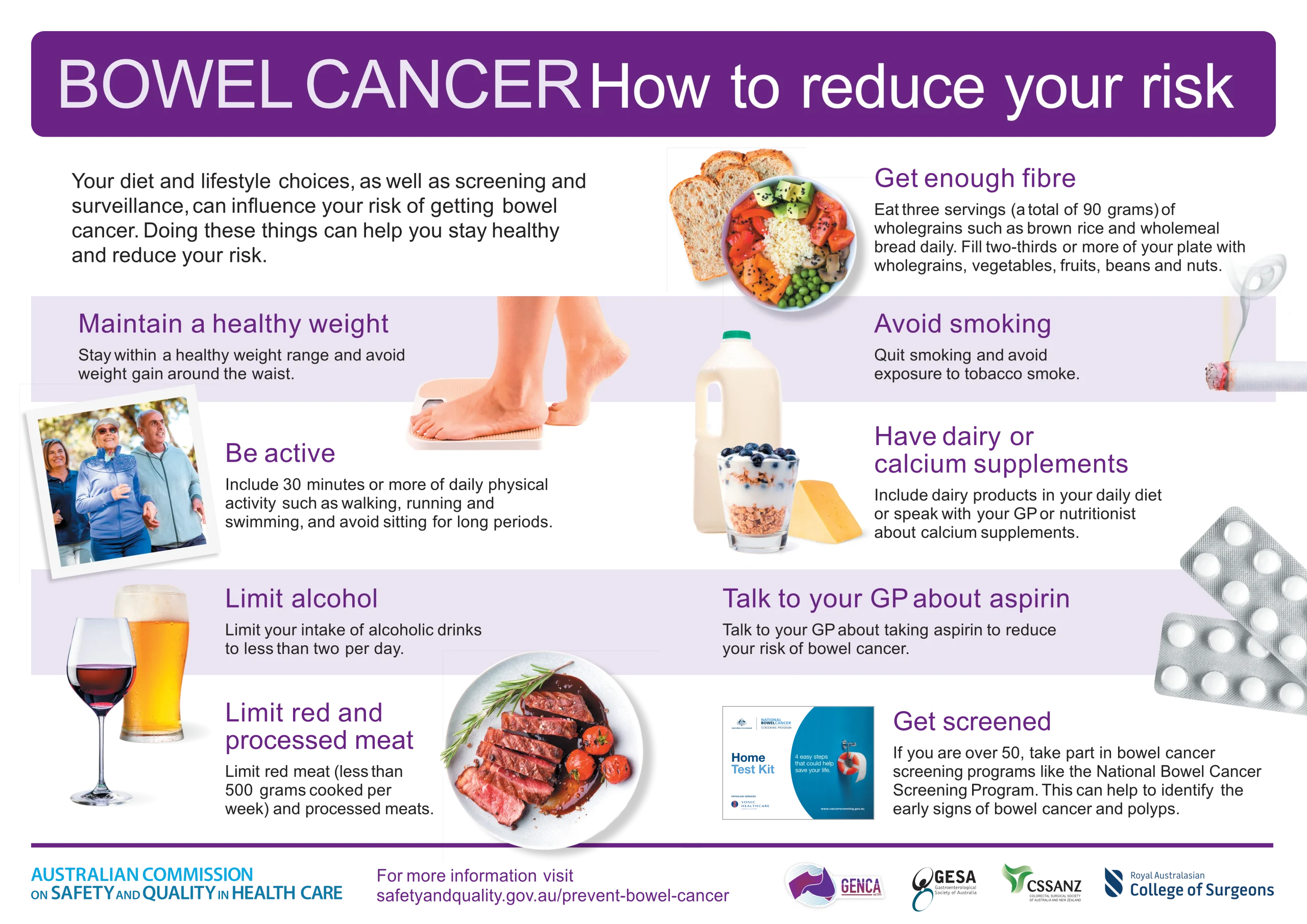Bowel Cancer
Bowel cancer, also known as colorectal cancer, is a type of cancer that begins in the colon or rectum.
It is one of the most common types of cancer worldwide and can affect both men and women.
Bowel cancer incidence varies globally, with higher rates observed in developed countries. Several factors contribute to its development, including age, family history of colorectal cancer or polyps, inflammatory bowel disease (such as Crohn’s disease or ulcerative colitis), and lifestyle factors.
However, bowel cancer in younger people has been rising since the 1980s. Now, one in 10 new bowel cancer cases occur in people under the age of 50.


Prevention
Several lifestyle modifications reduce the risk of bowel cancer. Adopting a healthy diet rich in fruits, vegetables, and whole grains while limiting the consumption of red and processed meats can lower the risk. Regular physical activity, maintaining a healthy weight, avoiding smoking, and moderating alcohol intake also play significant roles in prevention. New research is being done on the role of the gut microbiome in this space.
Early detection
Early detection through screening can lead to better outcomes by identifying precancerous polyps or early-stage cancers, when treatment is more effective.



